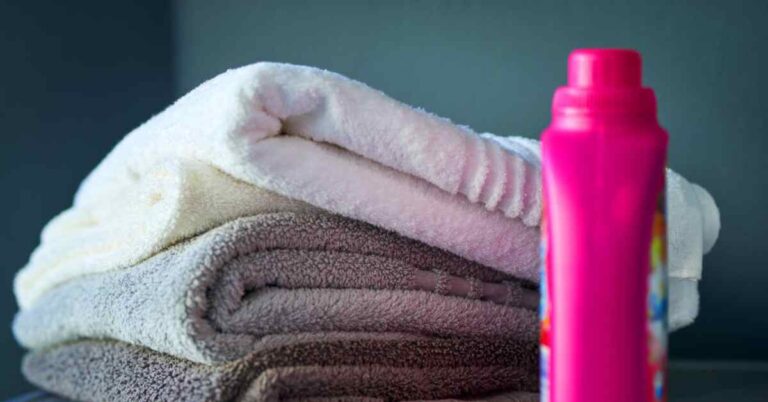Bathroom countertops are one of the most important elements of any bathroom design. They provide a surface for your sink, faucet, toiletries, and other essentials and a focal point for your bathroom style. But what are bathroom countertops made of? And how do you choose the best material for your bathroom?
Many materials can be used for bathroom countertops, each with pros and cons. Some of the most popular materials are:
- Laminate
- Tile
- Solid surface
- Natural stone
- Quartz
- Concrete
- Crushed glass
In this article, we will explore each material’s characteristics, advantages, and disadvantages and help you decide which is right for your bathroom.
Laminate Countertops
Laminate countertops are made from plastic layers bonded to a particleboard or MDF core. They come in a wide range of colors, patterns, and textures and can mimic the look of wood, granite, marble, or even leather.
Pros:
- Laminate countertops are very affordable and easy to install.
- Laminate countertops are durable and resistant to moisture, stains, and bacteria.
- Laminate countertops are low maintenance and easy to clean.
Cons:
- Heat, scratches, or cuts can damage laminate countertops.
- Laminate countertops can fade or warp over time.
- Laminate countertops can look cheap or outdated compared to other materials.
Laminate countertops are best for guest bathrooms or powder rooms where style is not a priority. They can also be a good option for budget-conscious homeowners who want to update their bathroom quickly and easily.
Tile Countertops
Tile countertops are made from ceramic, porcelain, or stone tiles laid on a plywood or concrete base. They can create a unique and customized look for your bathroom, as you can choose from different sizes, shapes, colors, and patterns of tiles.
Pros:
- Tile countertops are versatile and adaptable to any style or theme.
- Tile countertops are durable and resistant to heat, moisture, stains, and bacteria.
- Tile countertops can be repaired or replaced easily if damaged.
Cons:
- Tile countertops can be expensive and difficult to install.
- Tile countertops require grout lines that can collect dirt and mold.
- Tile countertops can crack or chip if not properly installed or maintained.
Tile countertops are best for creative homeowners who want to express their personality and style in their bathroom. They can also be a good option for homeowners using recycled or eco-friendly materials.
Solid Surface Countertops
Solid surface countertops are made from acrylic or polyester resins mixed with pigments and fillers. They have a smooth and seamless appearance resembling natural stone or other materials.
Pros:
- Solid surface countertops are non-porous and resistant to moisture, stains, bacteria, and mold.
- Solid surface countertops are easy to clean and maintain.
- Solid surface countertops can be repaired or refinished if scratched or damaged.
Cons:
- Solid surface countertops can be expensive and require professional installation.
- Solid surface countertops can be damaged by heat or sharp objects.
- Solid surface countertops can fade or discolor over time.
Solid surface countertops are best for homeowners who want a sleek and modern look for their bathroom. They can also be a good option for homeowners who want a hygienic and sanitary surface for their bathroom.
Natural Stone Countertops
Natural stone countertops are made from slabs of granite, marble, slate, soapstone, limestone, travertine, onyx, or other types of natural stone. They have a rich and elegant look that can enhance any bathroom design.
Pros:
- Natural stone countertops are long-lasting and strong enough to resist most chips or dents.
- Natural stone countertops have unique patterns and colors that add character and beauty to your bathroom.
- Natural stone countertops can increase the value of your home.
Cons:
- Natural stone countertops are very expensive and require professional installation.
- Natural stone countertops are porous and must be sealed regularly to prevent stains and damage.
- Natural stone countertops can be prone to scratches and etching from acidic substances.
Natural stone countertops are best for homeowners who want a luxurious and sophisticated look for their bathroom. They can also be a good option for homeowners who want a durable and high-quality surface for their bathroom.
Quartz Countertops
Quartz countertops are made from engineered stone with about 95 percent natural quartz crystals and 5 percent resins, pigments, and other additives. They have a uniform and consistent appearance that can imitate natural stone or other materials.
Pros:
- Quartz countertops are tougher than granite and don’t require sealing.
- Quartz countertops are non-porous and resistant to moisture, stains, bacteria, and mold.
- Quartz countertops have a variety of edge treatments and installation options.
Cons:
- Quartz countertops can be pricey and require professional installation.
- Quartz countertops can be damaged by heat or excessive force.
- Quartz countertops can show fingerprints and smudges, especially in dark or glossy colors.
Quartz countertops are best for homeowners who want a low-maintenance and high-performance surface for their bathroom. They can also be a good option for homeowners who want a wide range of colors and styles.
Concrete Countertops
Concrete countertops are made from a mixture of cement, sand, water, and other additives poured into a mold and cured. They have a raw and industrial look that can suit any bathroom style.
Pros:
- Concrete countertops are customizable and can be shaped, colored, textured, or embedded with objects.
- Concrete countertops are durable and resistant to heat, moisture, stains, and bacteria.
- Concrete countertops can be DIY-friendly if you have the skills and tools.
Cons:
- Concrete countertops can be expensive and require professional installation if not DIY.
- Concrete countertops are porous and must be regularly sealed to prevent cracks and damage.
- Concrete countertops can be heavy and require strong support.
Concrete countertops are best for homeowners who want a unique and creative look for their bathroom. They can also be a good option for homeowners using recycled or eco-friendly materials.
Crushed Glass Countertops
Crushed glass countertops are made from recycled glass mixed with cement or resin and molded into a solid surface. They have a colorful and sparkling look that can brighten up any bathroom.
Pros:
- Crushed glass countertops are eco-friendly and use recycled materials.
- Crushed glass countertops are durable and resistant to heat, moisture, stains, and bacteria.
- Crushed glass countertops have a variety of colors and patterns to choose from.
Cons:
- Crushed glass countertops can be expensive and require professional installation.
- If improperly installed or maintained, crushed glass countertops can be prone to chips or cracks.
- Crushed glass countertops can be sharp or rough on the edges if not polished or finished.
Crushed glass countertops are best for homeowners who want a fun and funky look for their bathroom. They can also be a good option for homeowners who want to support green living and reduce waste.
Conclusion
Bathroom countertops are made from different types of materials that have their own pros and cons. Depending on your budget, style, and needs, you can choose the best material for your bathroom.
Whether you prefer laminate, tile, solid surface, natural stone, quartz, concrete, or crushed glass, you can find the perfect countertop for your bathroom.


